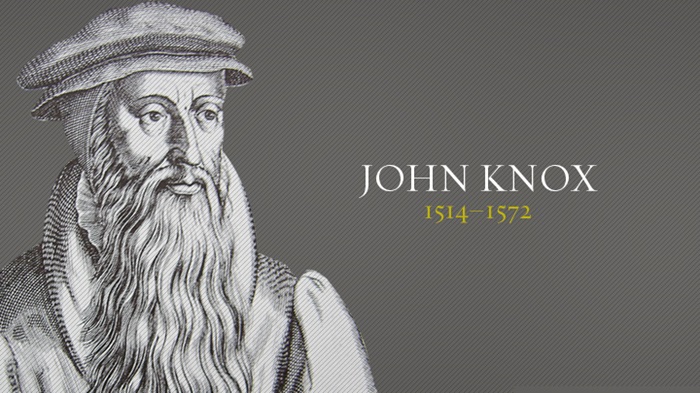
Part I
Part II
Part III
Part IV
Part V
Part VI
John Knox, the most famous Scottish Reformer, returned to his fatherland from Geneva in 1559 for the express purpose of reforming the church among his own people. By this time the Solemn League and Covenant was already established, whereby the Scottish nation dedicated itself as a covenanted nation to reform national life unto God’s glory.
After the Protestant nobleman petitioned the Scottish Parliament, it directed him to draw up a confession of faith that was to become the national confession of the Scottish kingdom. The Scots Confession was consequently drafted by six Protestant theologians, with John Knox playing the leading role in the process.
By virtue of its very name and historical context, the Scots Confession is therefore an explicitly nationalistic document, but the biblical doctrine of ethnonationalism is also reflected in its theological content.
The very first paragraph of the Confession’s preface states:
The Estates of Scotland, with the inhabitants of the same, professing Christ Jesus’ holy evangel: to their natural countrymen, and unto all other realms and nations, professing the same Lord Jesus with them, wish grace, mercy, and peace from God the Father of our Lord Jesus Christ, with the spirit of righteous judgment
1. Note the mention of “natural countrymen,” which is a clear reference to the bonds of kinship, appreciated and cherished as a providential gift by the authors of the confession.
2. After mentioning their kinsmen first, they proceed to address “all other realms and nations,” two distinct categories also found in the New Testament as basileía and ethne. Like Scripture, the Scottish Protestants realized the reality that national boundaries sometimes exceed their proper bounds and fail to reflect distinct ethnic units as they should (Acts 17:26) – hence the distinction of the two categories.
In case an objection may be raised that this particular phasing of the preface may have had a distinctly poetic-rhetorical – as opposed to theological – function, note the wording of chapter 16 of the confession, “Of the Kirk”:
[the] kirk is Catholic, that is, universal, because it contains the elect of all ages, all realms, nations, and tongues, be they of the Jews, or be they of the Gentiles; who have communion and society with God the Father, and with his Son Christ Jesus, through the sanctification of his Holy Spirit;
Here again we find the explicit reference to civic distinctions (realms), ethnic distinctions (nations), linguistic distinctions (tongues), and finally even racial distinctions (Jews/Gentiles). This article is theologically incompatible with the modernist errors of civic nationalism and multiculturalism. Without a doubt the authors of the confession appreciated, valued, and practically utilized divinely ordained distinctions with regard to nation and race with the purpose of glorifying God.
These men understood that there is a higher purpose to the very real and material distinctions implanted in God’s created and providentially sustained order, an order to which they willingly submitted for the sake of pleasing God.
Part VIII: Heinrich Bullinger’s Covenanted Nationalism
| Tweet |
|
|
|




